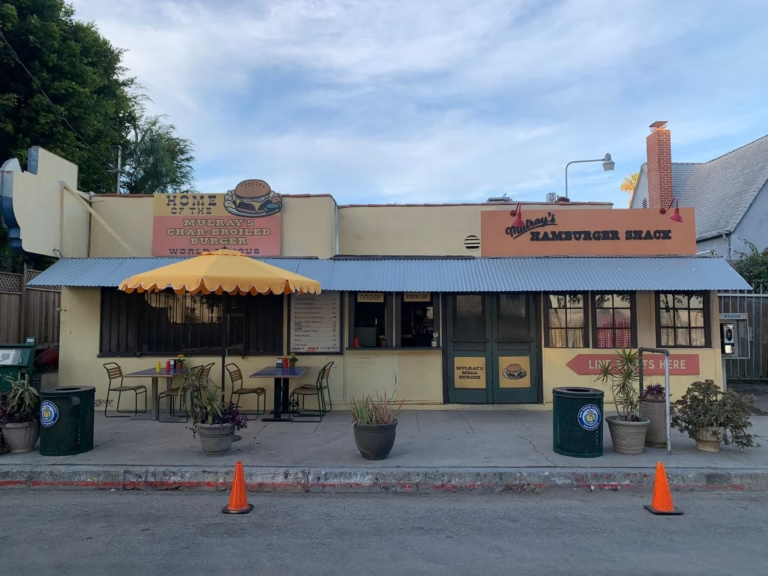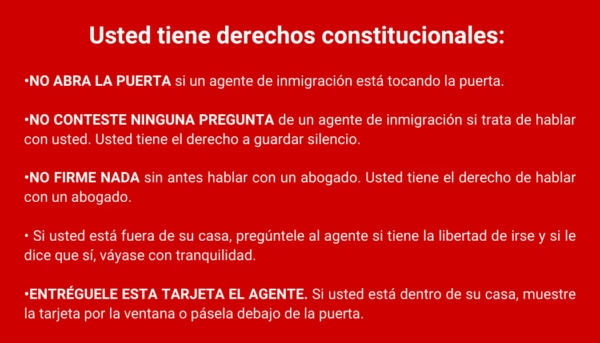If An Injury To One Is An Injury To All, What is An Injury to 2.3 Million?
“An injury to one is an injury to all” was the Wobblies’ slogan a century ago, as they worked to build one big union for all workers in all industries, regardless of the divisions bosses routinely used against them — ethnicity, race and religion. Today, the Trump/Musk regime is trying to injure 2.3 million workers — illegally and unconstitutionally firing tens of thousands outright and trying to traumatize the rest into quitting or falling in line with Trump’s lawless reshaping of government. Their hope is to portray government workers as demonized others, as not really workers at all.
But, “The Trump regime’s attempts to demonize federal workers flies in the face of the experience of everyday Americans. There is virtually nothing we do that does not have a federal hand in it!” said San Pedro labor lawyer Diane Middleton. “Send a letter anywhere in the U.S. for under one dollar? That’s the U.S. Postal Service—which Trump wants to privatize. Worried about the safety of food or drugs? That’s another federal agency. Concerned about infectious diseases spreading in the U.S. from another country? That’s the role of the CDC. How about visiting a national park?
“Let us be clear,” Middleton said. “The Trump administration has no mandate. The election was won with slightly over 1% of the popular vote. The people of America did not vote for any of this. Lawsuits have been filed challenging all of these unconstitutional power grabs.”
None of this impresses MAGA leadership.
“Federal employees do not deserve their jobs,” said MAGA Rep. Marjorie Taylor Greene flatly in an oversight hearing. “Those are not real jobs.”
Air traffic controllers, infectious disease specialists, national park rangers, IRS employees chasing down tax-cheating millionaires — these are not workers, they’re “bureaucrats,” you see. “We want the bureaucrats to be traumatically affected,” Trump’s top budget official Russel Vought said in videos surfaced by ProPublica before the election. “When they wake up in the morning, we want them to not want to go to work because they are increasingly viewed as the villains,” he said. “We want to put them in trauma.”
Putting 2.3 million workers in trauma. That’s the Trump/Musk anti-worker plan in a nutshell.
“They want to create shock and awe and traumatize workers and community members. Their plan is to issue something almost daily, overwhelm us, and dismantle our response mechanism,” said Victor Navarro, project director at UCLA Labor Center. .
So how is it making workers feel? AFGE represents over 750,000 federal workers, and their feelings range all across the map, according to Public Policy Director Jacqueline Simon.
“I can only tell you what our members have reported to us,” Simon told Random Lengths News. “They’ve expressed a range of emotions from fear to fury and at some point when they [DOGE] keep making mistake, after mistake, after mistake, just sort of throwing up their hands and laughing. So there’s all kinds of responses.”
One thing’s for certain, it’s not helping them do their jobs — which are all about serving the public.
The first agency Musk and DOGE targeted for defunding was USAID, not only getting rid of workers, but canceling contracts including millions of dollars of agricultural exports—and disease-fighting programs including Ebola and AIDS. USAID has saved millions of lives, and gained enormous gratitude and support for America since its founding by John F. Kennedy in 1961. Its support for America’s soft power in world politics has been invaluable. But now, “We’re watching psychological warfare against a workforce that has been committed to furthering the lives of other people,” USAID’s chief economist, Dean Karlan, told NPR on Feb. 26, just after resigning.
The cut-off of AIDS funding had cost 1,700 infant deaths as of Monday, March 3, and 16,633 adult deaths, according to the PEPFAR Impact Counter website. A leaked internal memo projected up to 18 million additional cases of malaria per year, and as many as 166,000 additional deaths, plus 200,000 children paralyzed with polio annually, and hundreds of millions of infections. This is what happens when you mass fire government workers. People die.
On Feb. 27, there were mass firings at National Oceanic and Atmospheric Administration and the National Weather Service, following the initial pattern of targeting “probationary workers”— either new hires with less than one to three years on the job (it varies by agency) or veterans newly promoted because of their exemplary performance. These workers are, in short, both the future of the agencies and some of its most valuable employees. They’re fired because their status makes it easy to do, though the reasons given—“poor performance” are patently absurd. In addition to workers promoted for excellence, some new hires had not even begun working yet. They had no performance to be judged on. The lives lost by firing them were not so readily predictable, but the economic losses are considerable.
“The U.S. NWS is a truly world-class meteorological predictive service, perhaps singularly so,” said UCLA meteorologist Daniel Swain. “Its cost of operation is only ~$3-4/yr per taxpayer —equivalent to a single cup of coffee — and yields a truly remarkable return on investment (at least 10 to 1, and perhaps 100 to 1).”
Firing workers at the IRS was similarly economically ludicrous: these are the people who bring money into the government—and the firings came just ahead of tax season. It’s like a business firing its accounts receivable department.
But looking at all the different sorts of agencies and workers affected distracts attention from the sheer big picture enormity of what’s going on. That enormity was underscored by a Feb. 26 memo calling for agency leaders to “undertake preparations to initiate large-scale reductions in force,” which could go as high as 65% at the Environmental Protection Agency, for example. “This memo is that wake-up call that the lives of the majority of the 2.3 million federal employees and their families are at stake,” Navarro said.
And not just those workers. “Any kind of job cuts at Social Security will be devastating,” Simon warned. “It’s already tremendously understaffed…. I think the harm will be felt almost immediately by beneficiaries.” Missed payments within the next three months are a distinct possibility.
The mass firings are reminiscent of Ronald Reagan firing air traffic controllers in 1981. Both are sharp breaks with tradition, but they didn’t come out of nowhere, and they sent a signal of much worse to come. “They are both connected to a strategy and agenda,” Navarro warned. “Reagan breaking the PATCO strike and firing 11,000 federal employees in 1981 launched his agenda to weaken the labor movement. Reagan’s NLRB followed this strategy by aggressively reversing precedents and diminishing workers’ rights,” he explained.
But the differences are equally important, Navarro noted. “A significant difference is the size and scale. What Trump is doing is massive compared to Reagan era and the consequence will be much more devastating,” Navarro said. “Roughly 80% of federal workers live outside the Washington area. This will have a devastating impact on the economic situation of these employees and their families, which will then be a drain on the local economies in the cities where they reside. Moreover, the planned massive layoffs and firings from many department will greatly diminish the delivery of their services to those in need.”
“We’re all connected. The federal government, the state and local government and the private sector,” Simon said. “We are all intertwined and without federal employees spending money in the private sector on housing and groceries and apparel and everything else, you will feel it in the private sector,” she warned. “When grants are not provided to the state government and local governments for promised infrastructure projects or healthcare, you will definitely see it impacting state and local budgets. So it so it’s all going to be felt up and down the scale.”
But Simon took issue with the Reagan comparison in one respect. “The air traffic controllers under Reagan went on strike, and when they did so they knew they were breaking the law. And so when Reagan fired them, he was operating within the law,” she said. This time it’s the opposite. The Trump administration is breaking laws left and right. She noted, “There are numerous lawsuits.”
But lawsuits alone aren’t enough. “They want to do the damage and expect to get sued,” Navarro said. “If the court rules against them, they appeal the decision to drag out the process. When they finally lose a case, they would have accomplished their goals by that point.”
Broadly speaking, “A major goal of the conservative groups and the Republican party has been to destroy the labor movement and unions,” Navarro noted. But, “What is happening today is different. Trump and his group have total disregard for the laws and regulations. They don’t even believe in Constitutional rights,” he said. “It is clear with their recent activities at NLRB and DOL, that they intend to deteriorate workers’ rights and are prioritizing the elimination of unions.”
To prevent that, “What we have as our most powerful weapon for justice is the streets and public protests,” Navarro stressed. “We are going to need the type of groundswell and mobilizing like we did on May Day 2006 when millions of workers took to the streets throughout the country in massive protests,” which were as close as America’s ever come to a general strike. “We will need to create this type of massive mobilization and sustain it. The legal strategy of filing lawsuits is useful to slow down their attacks and create breathing space for the organizing and mobilizing.”
The potential for that is substantial. “The one common denominator that we have today is that all workers – private sector, public, independent/misclassified, gig workers, etc. are under attack,” Navarro pointed out. “With this major crisis today, we have a big opportunity to lift up the political consciousness of the working class and engage in this struggle together. Anthony Romero, executive director of National ACLU, said it best in an interview recently where he said, ‘we may need to shut down the country.’”
“We the people are the only force that can stop this madness,” Middleton added.
Key to doing this are kinds of organizing work that fly below the radar of mainstream political reporting.
“In recent years, the labor movement has become broader in Los Angeles, NYC, Chicago, and other parts of the country to include worker centers, gig organizing efforts, and other worker struggles under the same umbrella,” Navarro explained. “We are more interconnected than ever before, especially in supporting organizing and policy campaigns. We will need to harness and deepen this collective solidarity building process to take it to the next level. We will need to be in radical solidarity to move our agenda to counter the Trump and Project 2025 strategy.”
To do that, “We need to prioritize seizing this moment to create public education and raising consciousness among all workers,” he said. “This should be a priority of unions, workers centers and other allies to engage in internal political education and raising consciousness on a massive level.”
Looking ahead, Navarro said, “May Day 2025 is coming up, and that could be the first moment to create the mass groundswell. It is in the streets where we will win.”



















